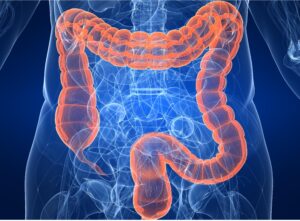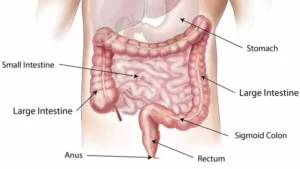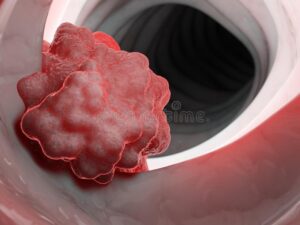Date :21-Mar-2023

Colon hydrotherapy, also known as colonic irrigation or colonic lavage, is a therapy that involves flushing the colon with large amounts of water to remove waste and toxins. It is based on the concept of hydrotherapy, which is a form of alternative medicine that uses water to improve health and well-being.
During a colon hydrotherapy session, a trained professional will use a machine to pump water into the colon, which helps to soften and loosen any impacted waste. This process is then repeated several times until the colon is completely flushed out.
Benefits of colon hydrotherapy include improved digestion, reduced bloating, and improved overall health and well-being.

COLON CANCER

Schematic diagram of colon
A safe and effective method of removing toxins from the large intestine. It involves flushing the colon with large volumes of water, usually up to 16 gallons (about 60 liters).
The process begins with the client lying on the treatment table and inserting a specially designed speculum into the rectum. The water is then slowly infused into the colon and remains there for a few minutes before being drained out. The process is repeated several times to ensure the colon is thoroughly cleansed. Colon hydrotherapy is believed to help with digestive issues, detoxification, and provide relief from constipation.

INTERNAL VIEW OF COLON
The most common signs and symptoms of colon cancer are: a change in bowel habits, such as diarrhea or constipation; rectal bleeding; dark maroon or bright red blood in stool; abdominal pain or cramping; exhaustion; and unexplained weight loss Other less common symptoms may include fatigue, shortness of breath, and anemia. If you experience any of these symptoms, contact your doctor immediately.

IMPORTANCE OF COLON HYDROTHERAPY
Overall, while there are varying opinions on the benefits of colon hydrotherapy, some potential points for its importance include supporting colon health, improving bowel preparation for colonoscopy, and promoting overall well-being. However, it is important to note that there is also some controversy around the safety and effectiveness of the practice.

Importance of colon hydrotherapy
The use of colon hydrotherapy in the treatment of disease can be dated back as far as the ancient Egyptians and Greeks. Colon therapy has been used to treat a variety of digestive disorders, including constipation, irritable bowel syndrome, colitis, and Crohn’s disease.
The main goal of colon hydrotherapy is to remove built-up toxins and waste from the colon, which can improve overall health and well-being. Colon hydrotherapy can help to restore balance to the digestive system, which can lead to improved energy, better sleep, improved concentration, and more regular bowel movements.
Additionally, colon hydrotherapy can help to improve nutrient absorption and reduce inflammation in the digestive system.
Colon therapy is important for overall health and wellness as it can help to improve digestive health, reduce the risk of colon cancer, boost energy levels, and improve nutrient absorption.
Here are some of the key benefits of colon therapy:
Ulcers in the colon can be caused by a number of different conditions, including inflammatory bowel disease (such as ulcerative colitis and Crohn’s disease), infections, and the use of nonsteroidal anti-inflammatory drugs (NSAIDs). Ulcerative colitis is a type of inflammatory bowel disease that specifically causes inflammation and ulcers in the colon and rectum. Crohn’s disease can also cause ulcers in the colon, often on the side of the colon near the mesentery. NSAID use can also cause colonic ulcers, particularly in the cecum and right colon. It’s important to see a doctor if you are experiencing symptoms such as abdominal pain, bloody diarrhea, and weight loss, as these can be signs of underlying conditions that require medical attention.

rectal cancer
Rectal cancer is a type of cancer that originates in the rectum, which is the last several inches of the large intestine that connects to the anus. The exact cause of rectal cancer is not known, but certain factors can increase the risk of developing this cancer, including a family history of colorectal cancers, personal history of inflammatory bowel disease, and an age over 50. Common symptoms of rectal cancer include changes in bowel habits (such as constipation or diarrhea), narrow stools, rectal bleeding, abdominal discomfort or pain, and unexplained weight loss.
Treatment options for rectal cancer may include surgery, radiation therapy, chemotherapy, or a combination of these treatments, depending on the stage and severity of cancer. It is important to get regular screenings for colorectal cancer, especially if you have an increased risk of developing this cancer. With early detection, rectal cancer and other types of colorectal cancers are highly preventable, treatable, and curable.
Rectal cancer treatment options can be summarized as follows:
Surgery: This is often the primary treatment for localized disease. It involves removing the cancerous tissue and may be followed by chemotherapy and radiation therapy.
Signs and symptoms of COLON HYDROTHERAPY
Importance of Colon hydrotherapy